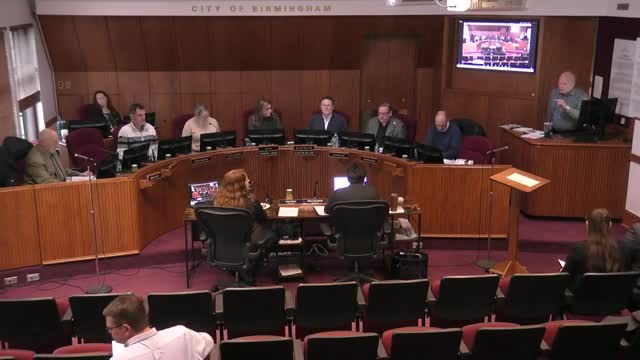Birmingham projects water/sewer rate stabilization after two-year increase, five‑year forecast shows tight capital needs
Get AI-powered insights, summaries, and transcripts
Subscribe
Summary
City officials presented a five‑year forecast showing strong property‑tax growth but rising capital demands and outlined plans to complete the transition to fully rate‑funded water and sewer in the 2025–26 fiscal year.
Birmingham City Manager Mark Gerber and a financial consultant walked commissioners through a five‑year financial forecast that shows continued growth in property tax revenue but increasing capital pressure from water, sewer and street projects.
Consultant Philip Femenidio said taxable values have grown strongly in recent years and are expected to increase through the forecast window. But he and Gerber warned that the city faces concentrated needs for water, sewer and local streets that will tighten fund balances and require choices about transfers and project timing.
Gerber and Femenidio told commissioners the city plans to finish the shift to a rate‑based water and sewer fund in the 2025–26 fiscal year. “For the 25‑26 fiscal year, there are no planned property taxes going into water/sewer,” Gerber said, framing the move as a deliberate step to remove operating‑millage support and rely on user rates. Staff said a planned two‑year increase in rates will get the utilities to target cost recovery and that future increases should smooth out afterward, subject to the city’s final engineering needs.
Commissioners pressed staff about the impact on household bills and on the budget if infrastructure requirements change after engineering assessments. Gerber and consultants repeated that the forecast is a planning tool, not a guarantee: assumptions about property‑value growth, wage inflation and capital scopes will drive results and staff will revisit projections as bids and project scopes are finalized.
The forecast also shows the city’s unassigned general‑fund balance hovering within policy targets under the baseline assumptions, but local‑street and water/sewer funds face steeper draws because of planned capital projects, including sidewalk replacement and targeted water‑main replacements.
Staff asked commissioners to view the forecast as a roadmap for budgeting and prioritization rather than a fixed projection. Commissioners and staff agreed to re‑evaluate the plan as engineering and bid results arrive.
